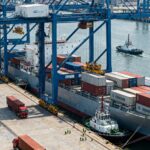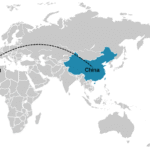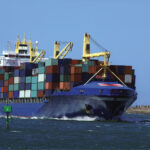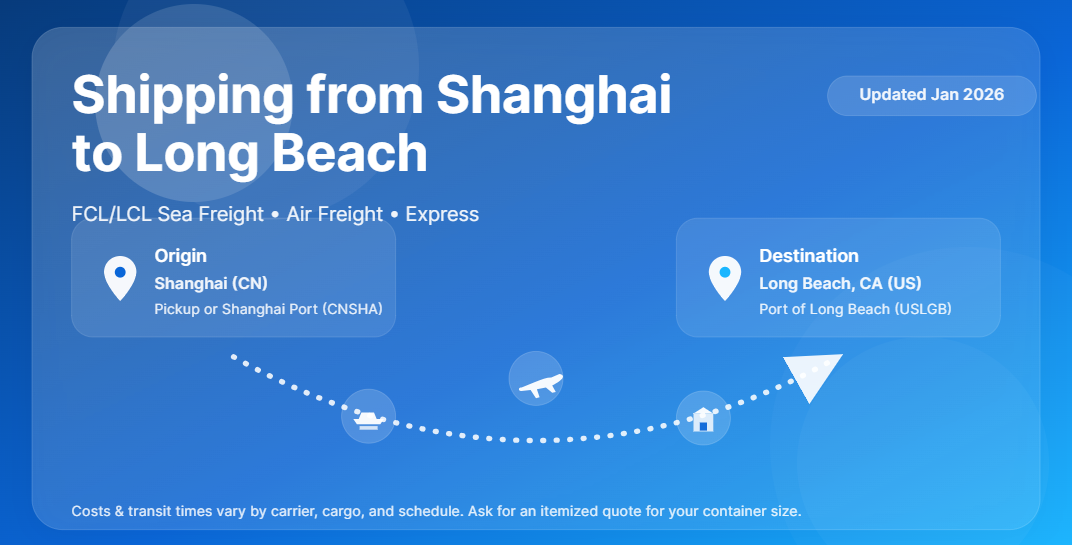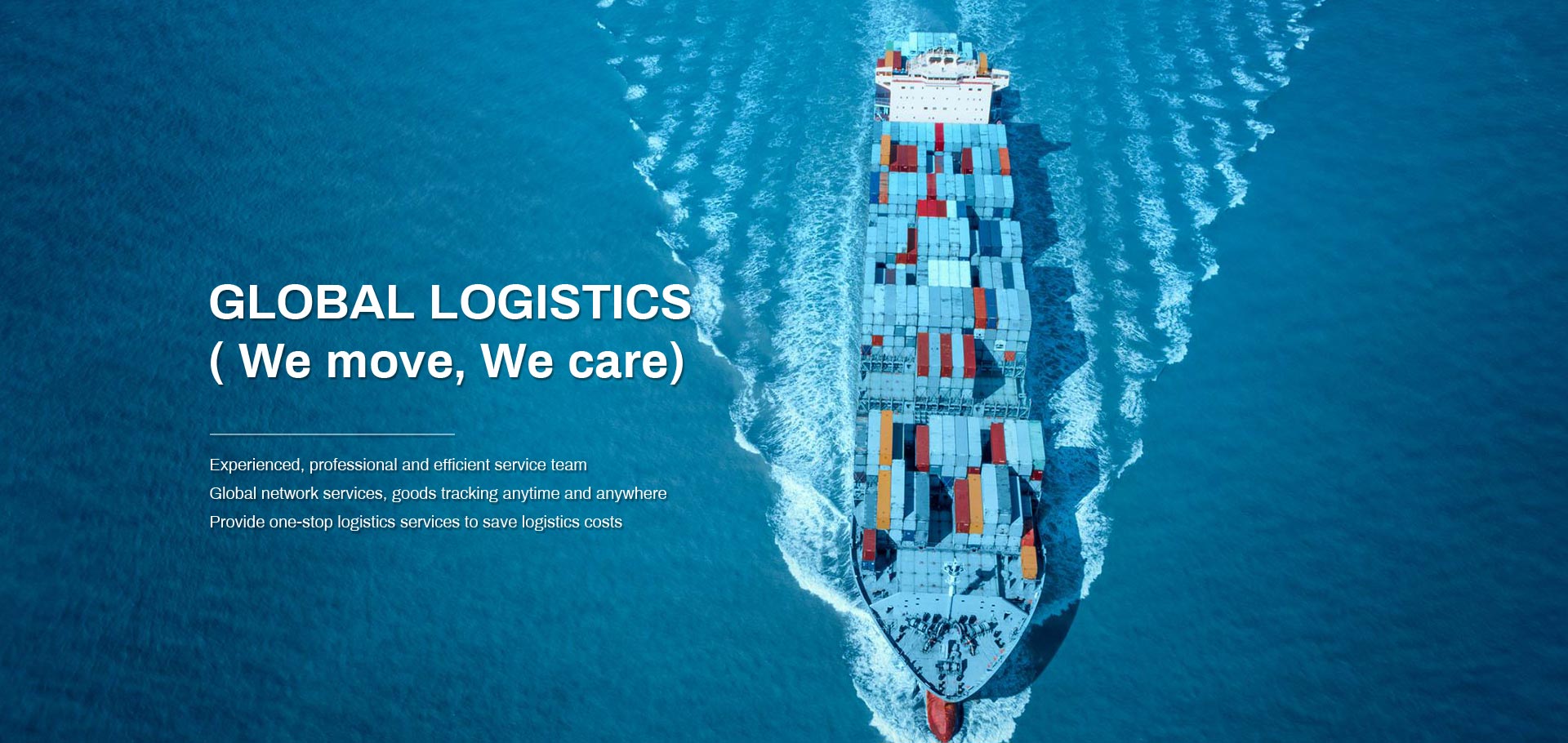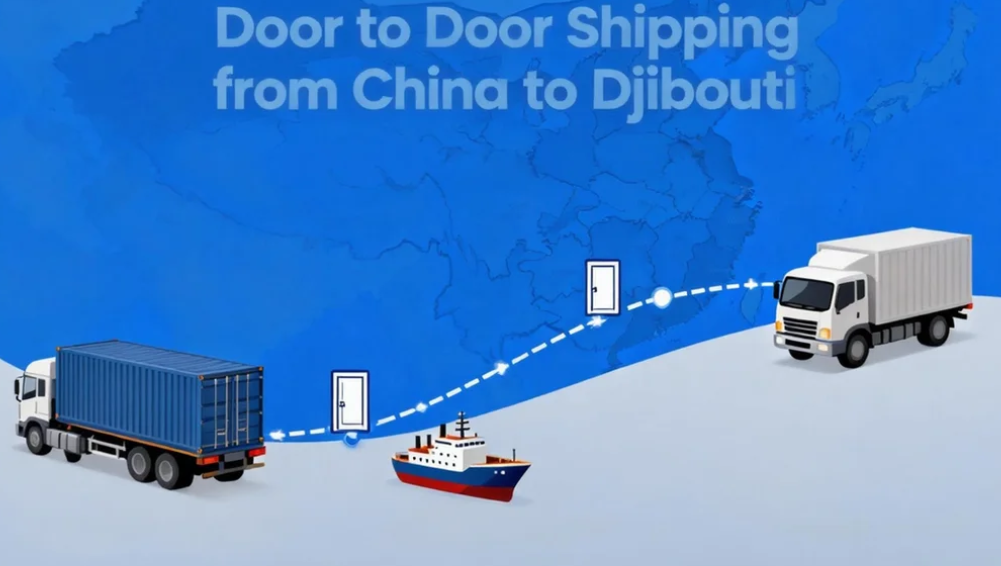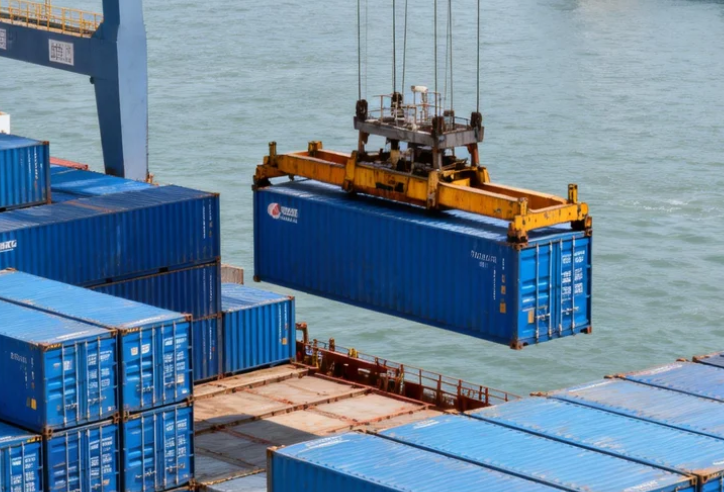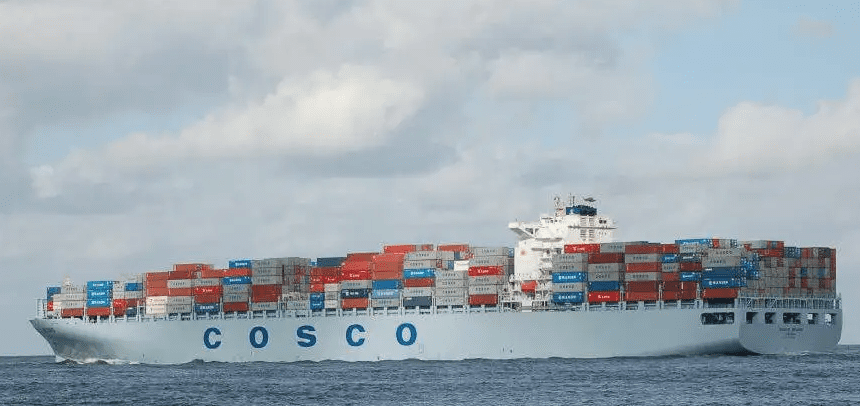Are you looking to understand the complexities of container shipping costs from China to Portugal?
Navigating the world of logistics can be daunting, especially when it comes to ensuring you get the best value for your shipments. In this comprehensive guide, we will delve into the cost breakdown for both 20 ft and 40 ft containers, explore the factors that influence these costs, and provide valuable tips to minimize expenses. Whether you’re a seasoned importer or just starting, this article will equip you with the insights needed to make informed shipping decisions.
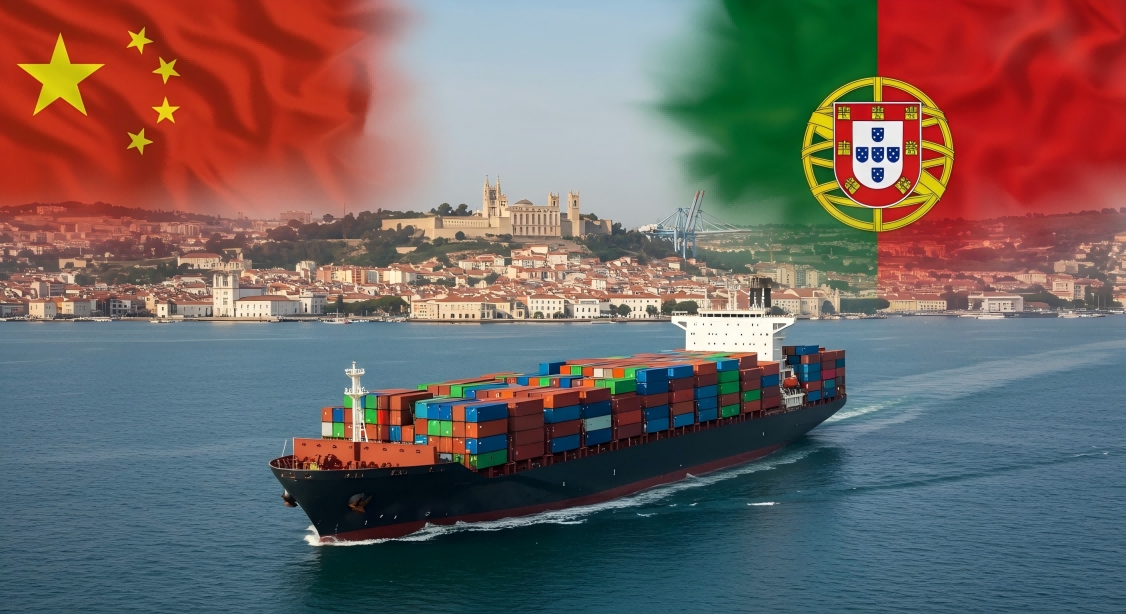
Understanding Container Shipping Costs from China to Portugal
Overview of Container Shipping
Container shipping is a fundamental component of international trade, acting as the backbone of global supply chains. This method involves transporting goods in standardized containers, which allows for efficient loading, unloading, and transfer across different modes of transport, including ships, trucks, and trains. The use of containers enhances security and reduces damage, making it an attractive option for businesses looking to import or export products.
Shipping from China to Portugal involves significant logistical considerations. China, being one of the largest manufacturing hubs globally, exports a vast array of goods, while Portugal serves as an important gateway to Europe. Understanding the costs associated with container shipping from China to Portugal is crucial for businesses to optimize their supply chain and maintain profitability.
Importance of Container Shipping in Global Trade
Container shipping plays a vital role in global trade, accounting for approximately 90% of the world’s trade volume by volume (source: International Maritime Organization). The ability to move large quantities of goods across vast distances efficiently and cost-effectively has transformed international commerce.
For businesses importing from China to Portugal, container shipping not only facilitates access to a diverse range of products but also allows for competitive pricing due to the economies of scale achieved through larger shipments. Moreover, container shipping significantly reduces transit times, enabling businesses to respond quickly to market demands and consumer needs.
20 ft Container Shipping Cost from China to Portugal
When considering shipping from China to Portugal, a 20 ft container is a popular choice for many importers. The cost of shipping a 20 ft container can vary based on several factors, including shipping lines, current market conditions, and additional services required.
Cost Breakdown for 20 ft Containers
Below is a typical cost breakdown for shipping a 20 ft container from major ports in China to Lisbon, Portugal. Please note that these figures are indicative and may vary depending on the shipping company and current market fluctuations:
| Cost Component | Estimated Cost (USD) |
|---|---|
| Ocean Freight (China to Portugal) | $1,200 – $2,000 |
| Port Handling Fees | $100 – $300 |
| Customs Clearance Fees | $150 – $250 |
| Insurance (Optional) | $50 – $150 |
| Additional Charges (if applicable) | $100 – $200 |
| Total Estimated Cost | $1,700 – $3,100 |
Key Considerations
Ocean Freight: This is the main cost and varies based on the shipping line, route, and current demand. It is advisable to consult with a reliable freight forwarder like Dantful International Logistics to get the most competitive rates.
Port Handling Fees: These may include charges for loading and unloading at the port.
Customs Clearance Fees: Essential for ensuring that all necessary documentation is processed for your shipment.
Insurance: Although optional, it is highly recommended to protect your cargo against loss or damage during transit.
Additional Charges: May include storage fees or other unexpected costs that can arise during shipping.
By understanding the costs involved in shipping a 20 ft container from China to Portugal, businesses can better plan their budgets and logistics, ensuring a smooth import process. For a cost-effective and high-quality shipping solution, consider partnering with Dantful International Logistics, which offers a comprehensive range of services tailored to meet your international shipping needs.
Read More:
- Shipping From China To Netherlands
- Shipping From China To Spain
- Shipping From China To Germany
- Shipping From China To France
- Shipping From China to Italy
- Shipping From China To Poland
- Shipping From China to United Kingdom
40 ft Container Shipping Cost from China to Portugal
When considering 40 ft container shipping costs from China to Portugal, it is essential to understand the various components that contribute to the overall expense. A 40 ft container, often utilized for larger shipments, can carry a significant amount of goods, making it an economical option for businesses looking to import large volumes from China.
Cost Breakdown for 40ft Containers
The cost of shipping a 40 ft container from China to Portugal typically includes several key elements, such as:
| Cost Component | Estimated Cost (USD) |
|---|---|
| Base Freight Rate | $3,500 – $5,500 |
| Destination Port Charges | $300 – $600 |
| Customs Clearance Fees | $150 – $400 |
| Insurance (optional) | $100 – $300 |
| Handling Fees at Port | $200 – $500 |
| Total Estimated Cost | $4,350 – $7,900 |
(Note: The above costs are estimates and can vary based on specific shipping lines, port of origin in China, and the destination port in Portugal. For the most accurate quotes, it is advisable to consult with a logistics provider like Dantful International Logistics.)
Factors Influencing Container Shipping Costs
Understanding the factors that influence container shipping costs is crucial for importers looking to optimize their logistics expenses. Several key aspects can affect the pricing of 40 ft container shipping from China to Portugal:
Type of Container: FCL vs. LCL
When shipping goods, you have the option between Full Container Load (FCL) and Less than Container Load (LCL).
- FCL is more economical for larger shipments, as you pay for the entire container. It’s ideal for importers with enough goods to fill a 40 ft container.
- LCL, on the other hand, allows you to share container space with other shippers, which can be more cost-effective for smaller shipments but may lead to higher per-unit costs.
Distance and Shipping Routes
Shipping costs also vary based on the distance traveled and the chosen shipping route. Direct routes can be more cost-effective, while indirect routes may incur additional fees and longer transit times. The primary shipping route from China to Portugal typically involves departing from major ports such as Shanghai or Shenzhen, with destinations like Lisbon or Porto.
Seasonal Variations in Shipping Costs
Shipping costs can fluctuate due to seasonal demand. Peak seasons, such as the holiday period, often see increased rates due to higher demand for container space. Conversely, shipping during off-peak times may yield lower costs. Monitoring these trends can help businesses plan their shipments more effectively.
Impact of Fuel Prices on Shipping Rates
The price of fuel is another significant factor that influences shipping costs. As fuel prices rise or fall, they directly impact freight rates. Shipping companies often adjust their rates based on fluctuating fuel costs. Keeping abreast of these changes can provide insight into potential cost increases or savings in container shipping.
In summary, understanding the cost breakdown and the various factors affecting 40 ft container shipping costs from China to Portugal is essential for importers looking to make informed decisions. By leveraging the expertise of a professional logistics provider like Dantful International Logistics, businesses can ensure they receive competitive rates and efficient service tailored to their unique shipping needs. We offer a range of services including Ocean Freight, Customs Clearance, and Insurance, ensuring a seamless shipping experience. For more information, you can also check our page on Shipping From China To Portugal.
Additional Costs to Consider in Container Shipping
When embarking on container shipping from China to Portugal, it is essential to be aware of various additional costs that can significantly impact your overall expenses. Understanding these costs will enable you to budget more effectively and avoid unexpected financial burdens.
Customs Duties and Taxes
One of the most substantial additional costs in container shipping is customs duties and taxes. Upon arrival in Portugal, imported goods are subject to tariffs based on their classification under the Harmonized System (HS) codes. The duty rates can vary significantly depending on the type of goods being imported. For example, textiles may incur different tariffs compared to electronics. It is crucial to consult with a customs broker or a freight forwarder like Dantful International Logistics to ascertain the applicable duties and ensure compliance with local regulations.
Additionally, imports into Portugal may be subject to Value Added Tax (VAT), which is typically around 23%. This tax is applied to the total value of the goods, including any applicable customs duties. Understanding these taxes upfront can help businesses avoid compliance issues and control their shipping costs.
Handling and Port Fees
Handling and port fees are other significant expenses that can arise throughout the shipping process. These fees encompass various charges levied by the port authorities and terminal operators for services such as:
- Loading and unloading of containers
- Storage fees for containers awaiting pickup
- Terminal handling charges (THC) associated with the processing of containers at the port
These fees can vary from port to port, and it is advisable to check with the specific port in Portugal where your goods will arrive. For example, ports like Lisbon, Leixões, and Setúbal may have different fee structures. A table summarizing estimated handling and port fees can be beneficial for comparative analysis:
| Port of Arrival | Estimated Handling Fee (20ft) | Estimated Handling Fee (40ft) |
|---|---|---|
| Lisbon | €150 | €300 |
| Leixões | €120 | €250 |
| Setúbal | €140 | €270 |
It is also important to factor in additional costs such as demurrage fees for containers that remain at the port longer than permitted, as well as detention fees if containers are not returned within the allotted timeframe.
Insurance Costs for Container Shipping
Insurance is a critical component of the shipping process, safeguarding against potential losses or damages to your cargo during transit. The cost of marine cargo insurance typically ranges from 0.3% to 2% of the total insured value of the goods, depending on factors such as:
- The type of cargo being shipped
- The shipping route
- The value of the cargo
While some may opt to forego insurance to save costs, it is essential to assess the risks associated with shipping goods internationally. A small percentage spent on insurance can provide peace of mind and financial protection against unforeseen events, such as theft or damage during transit. Dantful International Logistics offers comprehensive insurance options that can be tailored to meet your shipping needs.
Tips for Reducing Container Shipping Costs
Reducing container shipping costs requires a strategic approach. Here are some practical tips:
Consolidate Shipments: Opt for Less than Container Load (LCL) instead of Full Container Load (FCL) when shipping smaller volumes. This allows you to share container space with other shippers, effectively reducing costs.
Choose the Right Freight Forwarder: Partnering with a reputable and experienced freight forwarder like Dantful International Logistics can lead to cost savings through negotiated rates and expert handling of logistics.
Plan Ahead: Avoid peak shipping seasons to benefit from lower rates. Plan your shipments during off-peak times when demand is lower, and shipping rates tend to be more favorable.
Optimize Packaging: Efficient packaging can reduce shipping volume and weight, leading to lower costs. Work with suppliers to ensure that goods are packed in a space-efficient manner.
Negotiate Rates: Always seek to negotiate shipping rates with carriers and freight forwarders. Long-term partnerships can also lead to better rates and services.
Consider Alternative Ports: Sometimes, shipping to and from less busy ports can result in lower handling and port fees. Evaluate all available options to determine the most cost-effective routes.
By understanding and managing these additional costs effectively, importers can navigate the complexities of container shipping from China to Portugal and achieve significant savings on their logistics expenditures.

Young Chiu is a seasoned logistics expert with over 15 years of experience in international freight forwarding and supply chain management. As CEO of Dantful International Logistics, Young is dedicated to providing valuable insights and practical advice to businesses navigating the complexities of global shipping.

